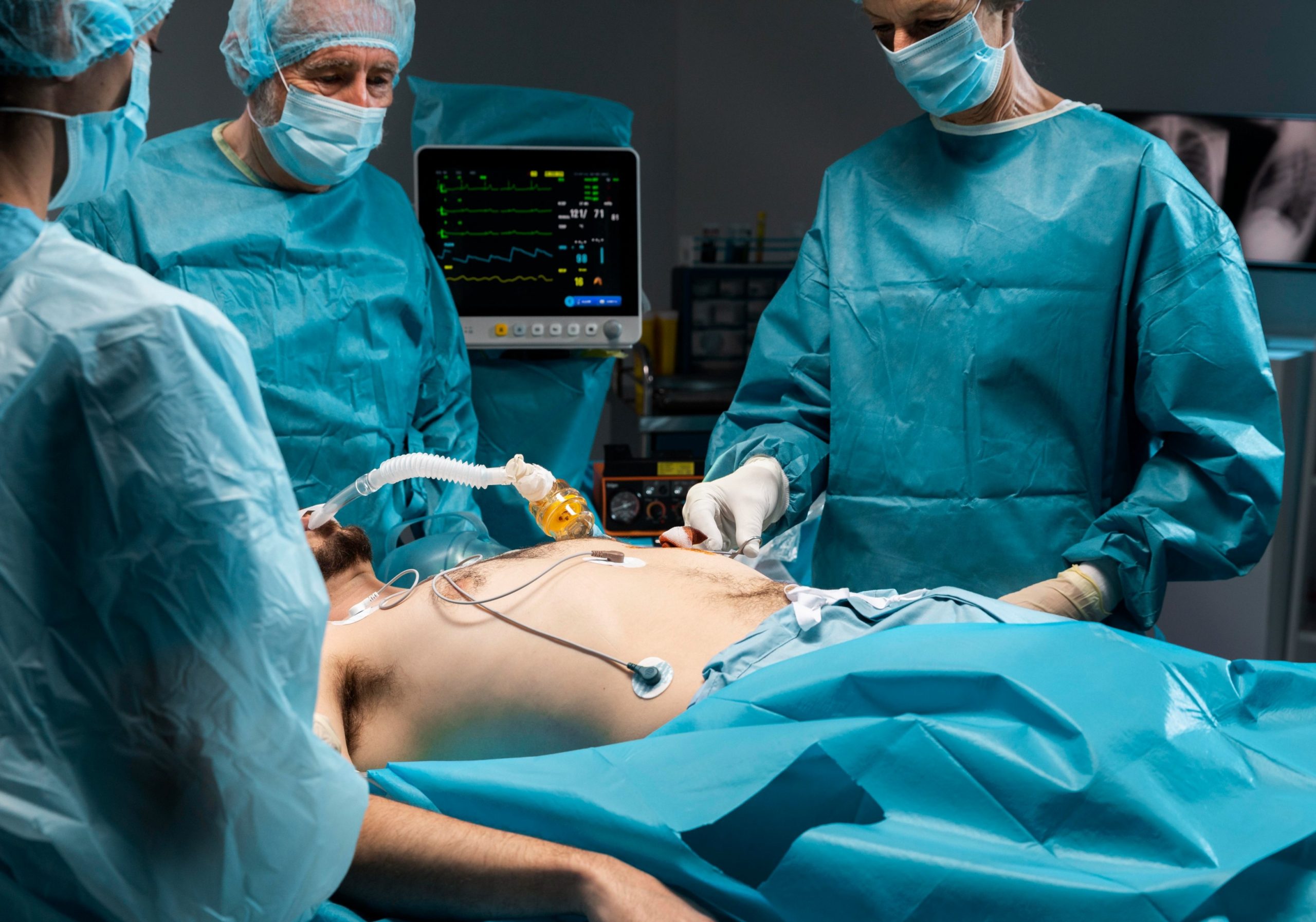Introduction
Aortic valve replacement is a surgical procedure in which a poorly functioning aortic valve is replaced with a biological or mechanical valve. One out of the four valves that control the heart’s blood flow, the aortic valve’s improper functioning can hamper the blood flow, thereby affecting the blood supply to the body. Furthermore, it will strain the heart. Aortic valve replacement refers to the aortic valve disorder treatment.
Understanding the need for aortic valve replacement
The aortic valve facilitates the blood flow in the right direction. It allows blood to flow from the left ventricle (main pumping chamber) to the principal artery, which supplies the oxygenated blood to the body. Aortic valve dysfunction disturbs the normal blood flow. Repair or replacement of the aortic valve can restore normal valve functioning and blood flow.
The surgery for the replacement of a poorly functioning aortic valve can reduce symptoms and prolong life. Aortic valve repair or replacement is essential for aortic valve treatment in the following conditions:
- Aortic valve stenosis– Narrowing or obstruction of the aortic valve is the result of stenosis. It makes the heart work harder while pumping blood to the aorta. Aortic valve stenosis can also result from Congenital Heart Disease (CHD). It causes thickening of the closure flaps. Post-inflammatory changes because of rheumatic heart disease may also lead to aortic valve stenosis.
- Aortic valve regurgitation– Aortic valve is like a non-return valve. It ensures blood flow in one direction and prevents backward flow. Aortic valve disorders may cause blood to flow backward from the aortic valve into the main pumping chamber. The reverse flow or regurgitation occurs because of a leaky or malfunctioning valve. The irregular shape of the aortic valve may cause regurgitation.
A heart valve surgery treatment in Coimbatore may be necessary because most disorders of aortic valves are mechanical dysfunctions. Although a mild aortic valve disorder is manageable with regular monitoring, there is a need for surgical intervention in most cases.
When should you visit a physician for aortic valve treatment?
In some individuals, aortic valve disorder can be part of a normal aging process of the valve. Besides, the following are some conditions that lead to aortic valve stenosis or regurgitation:
- Congenital heart defects
- Bacterial infections affecting the valve
- A tear or split in the aorta
- Enlargement or weakening of aortic root (aneurysm)
Treatment of an enlarged section of aortic root may require replacement of the aortic valve and aortic root in the best hospital for aortic root surgery. The procedure aims at preventing aortic valve tear or a burst aneurysm.
If you have a poorly functioning aortic valve, you need to consult a physician for early treatment. Most aortic disorders are treatable with timely heart valve surgery treatment in Coimbatore. Aortic valve stenosis or regurgitation may present the following symptoms:
- Breathing difficulties
- An episode of passing out
- Swelling in lower extremities
- Fatigue
- Chest pain
- Palpitations
You may require surgery if these symptoms get worse. An early heart valve surgery treatment ensures a better outcome. Visit a physician to know your options if you notice any of the above symptoms.
Aortic valve replacement surgery
Surgery for replacing the poorly functioning aortic valve is a significant part of aortic valve disorder treatment. A few factors may enhance the risks of complications in aortic valve replacement surgery. These include:
- Chronic medical conditions
- Obesity or being overweight
- Age
- Lung conditions
- Smoking habit
- Infections
Aortic valve replacement may involve a traditional approach of open-heart surgery or a minimally invasive procedure. The choice of the surgical procedure depends upon the patient’s condition and the facilities available at a particular hospital. The traditional option of the open heart may be suitable if an individual has coronary artery disease along with aortic valve disorder.
Your physician will discuss the selection of a biological or mechanical valve before the aortic valve replacement. The physician will choose a suitable option by considering various factors. Biological valves comprise the heart tissues of pigs, humans, or cows. In rare cases, doctors may use the patient’s pulmonary valve to replace an aortic valve. Mechanical valves need no replacement, unlike biological valves that are prone to degeneration. However, the patient will have to use medication for blood thinning in case of a mechanical valve.
Options of minimally invasive aortic valve replacements also include Transcatheter Aortic Valve Replacement (TAVR). This procedure requires smaller incisions as compared with traditional surgeries.
In conclusion,
The aortic valve allows blood flow from the left ventricle to the body through the aorta. Aortic valve disorders disturb the function of the heart and also hamper blood flow. Surgical replacement of a poorly functioning aortic valve is a crucial aspect of aortic valve disorder treatment. Timely treatment of aortic valve disorder promises a better outcome with relief from symptoms and longer life.


